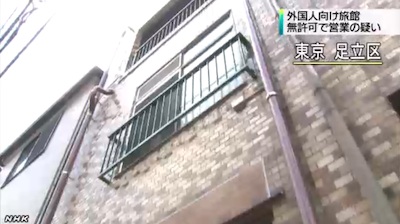Future redevelopment in Akasaka 7 Chome

Landowners in Akasaka 7 Chome have formed an association with a view to redeveloping their neighbourhood. Although details are yet to be confirmed, its possible that a developer is already involved in the planning.Read more
April rental data - Tokyo Kantei
According to Tokyo Kantei, the average monthly rent of a condominium apartment in greater Tokyo was 2,637 Yen/sqm in April, up 1.4% from the previous month and up 4.4% from April 2013. The average apartment size was 59.28 sqm and the average building age was 18.1 years.Read more
New apartment supply in April down 40%
According to the Real Estate Economic Institute, 2,473 new apartments were released for sale across greater Tokyo in April, down 46.7% from March and down 39.6% from April 2013. This is the third month in a row to see a year-on-year drop in the supply of new apartments.
1,848 apartments were sold, making the contract rate 74.7%. This is 5.1 points lower than the contract rate in March and 3.5 points lower than last year. Meanwhile, 2,785 secondhand apartments were sold during the month, down 30.3% from March and down 10.7% from last year. Read more
Briton arrested for running illegal lodgings in Tokyo

A British expat was arrested on May 16 for operating a short-stay hotel without a proper license. The 28-year old wanted to offer cheap accommodation for foreign tourists and rented out rooms and bunk-beds in a share-house in Adachi-ku.Read more
Secondhand apartment transactions drop 30.3% in April but prices continue to rise
According to REINS, 2,785 secondhand apartments were sold across greater Tokyo in April, down 30.3% from the previous month and down 10.7% from April 2013.
While the number of transactions saw a steep drop, actual sale prices have continued to increase. The average sale price across greater Tokyo was 26,880,000 Yen, up 0.9% from the previous month and up 5.2% from last year. The average price per square meter was 424,000 Yen, up 1.8% from the previous month and up 7.7% from last year.Read more
Groundbreaking ceremony for Japan’s first 60-storey apartment building

Developers of a 60-storey apartment building in Shinjuku held a groundbreaking ceremony on May 12.
The high-rise condominium will be the tallest apartment building in Japan (based on the number of floors) when complete in 2017. At 208.97m tall, it will be just 43cm shy of the tallest apartment building in the country - The Kitahama in Osaka.Read more
Residential yields and vacancy rates in Minato-ku - May 2014

According to real estate listing site Homes, the average gross yield on an apartment in Minato-ku in May was 5.3%, down 0.1 points from April. The average gross yield across Tokyo was 7.1%, down 0.1 points.Read more
